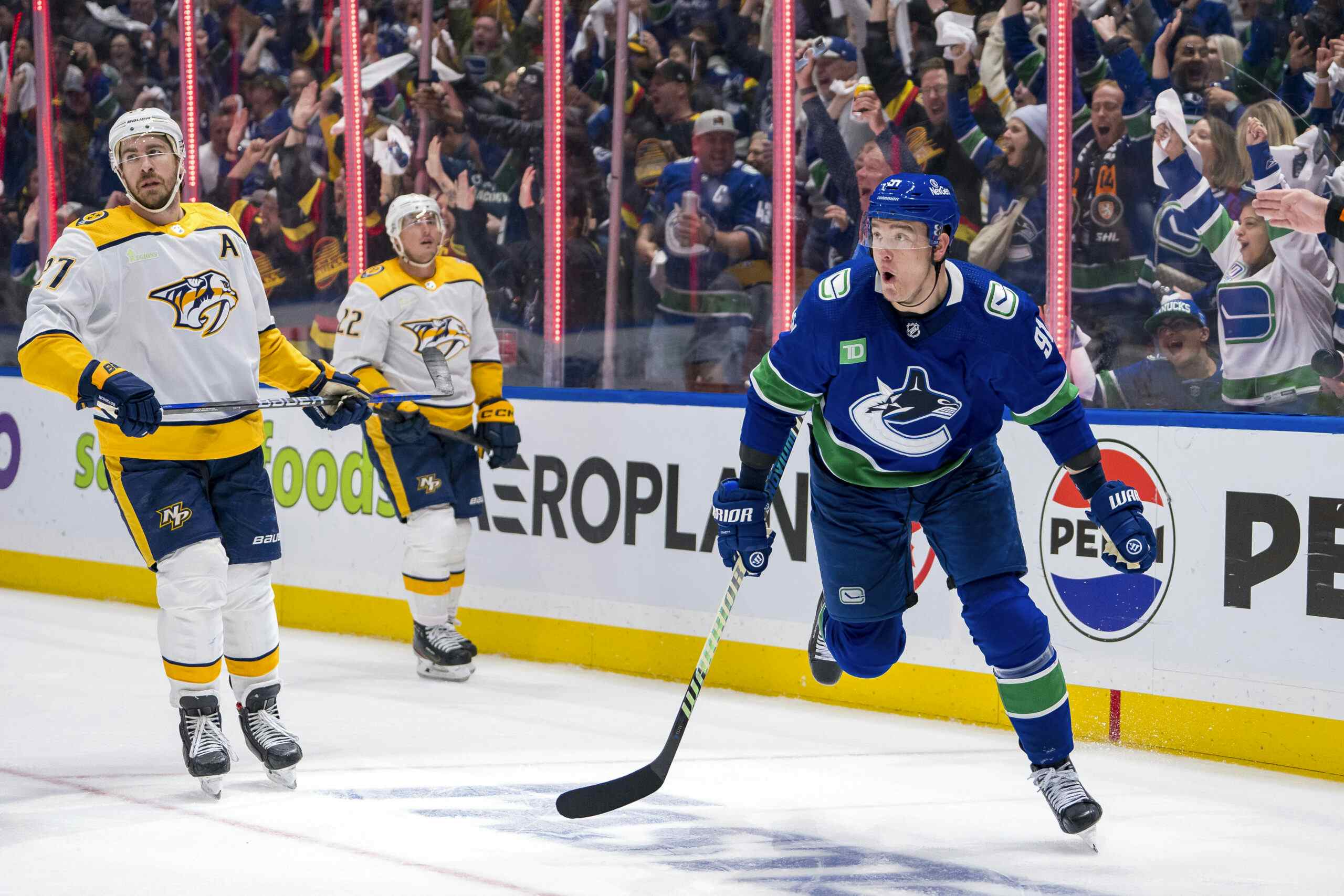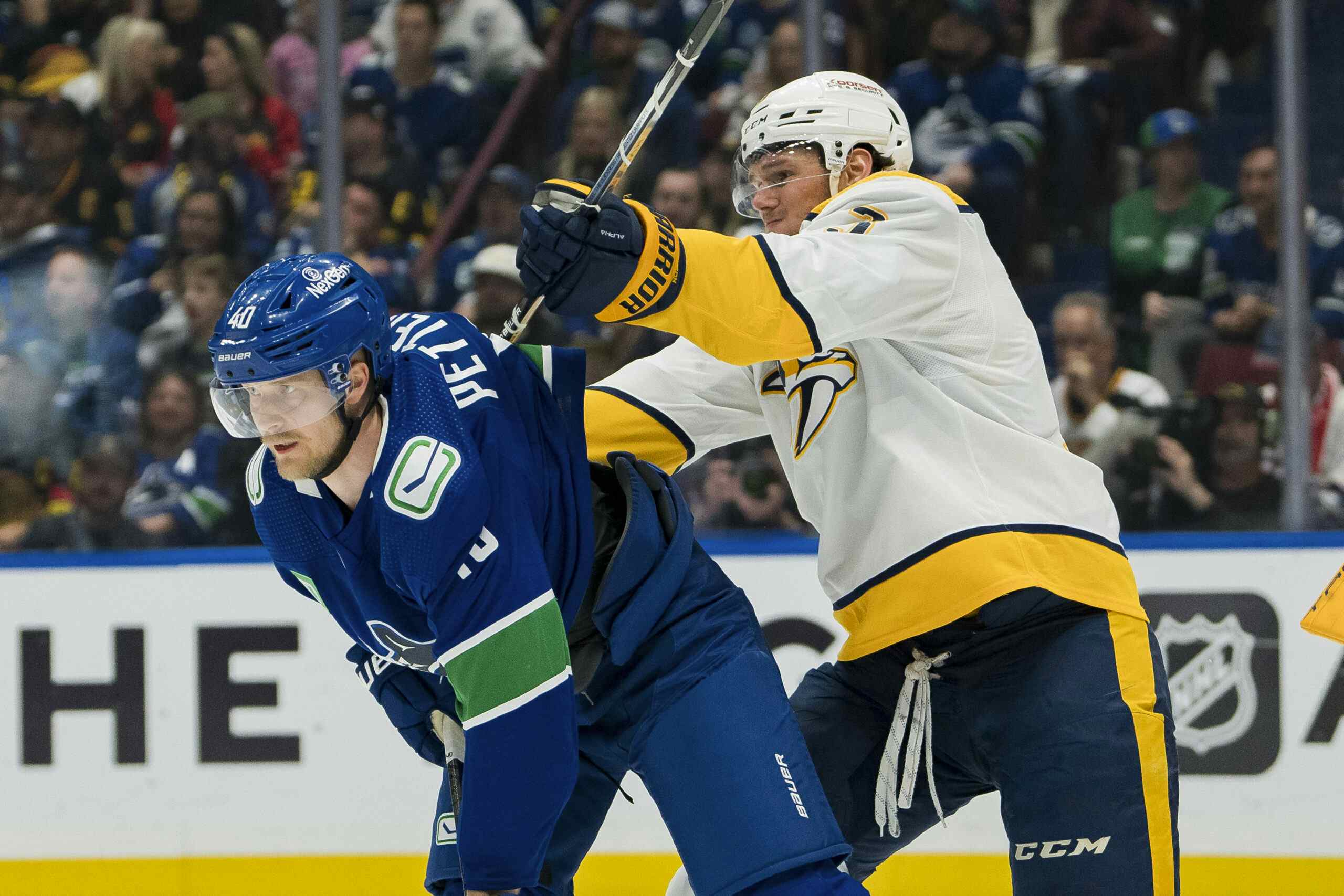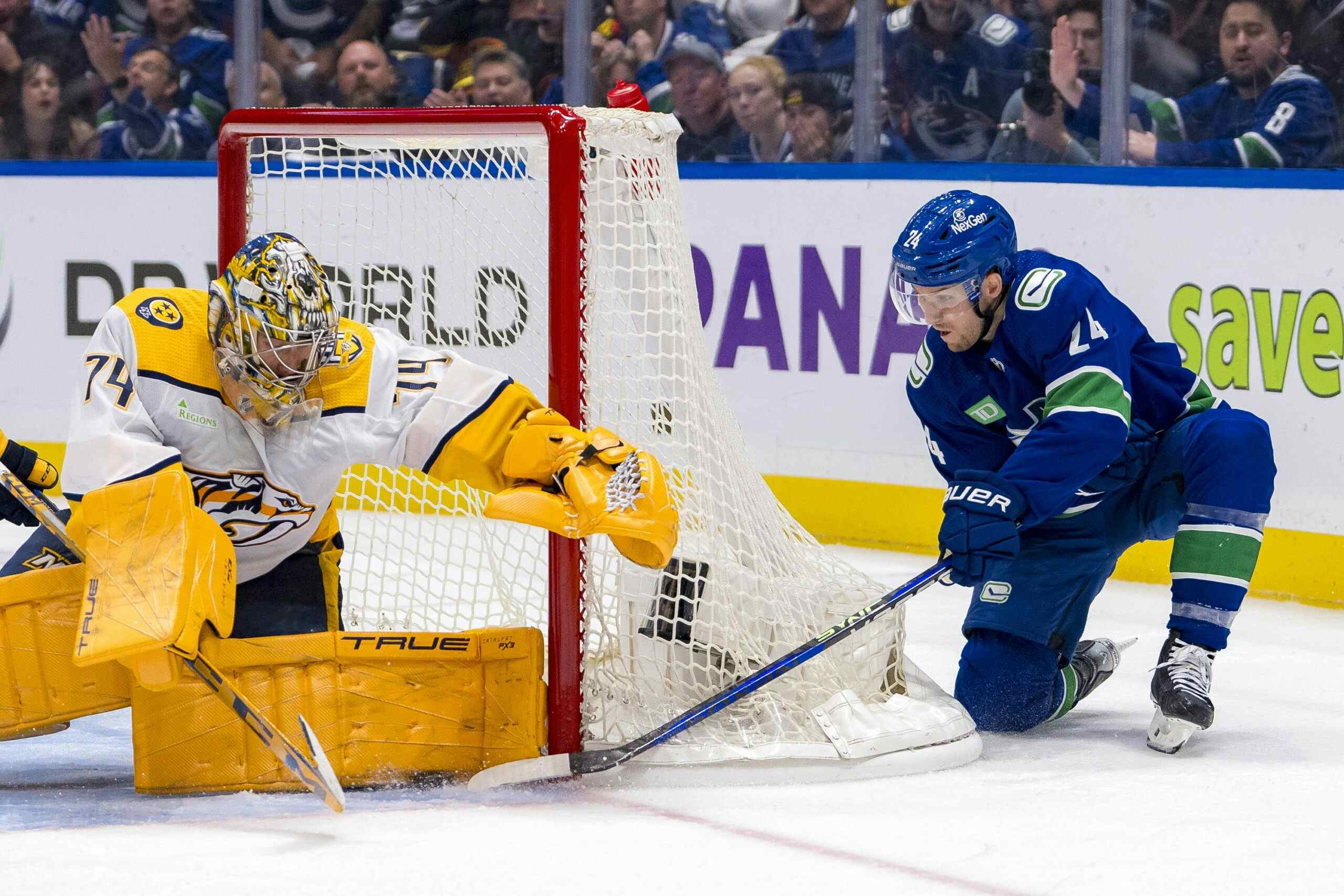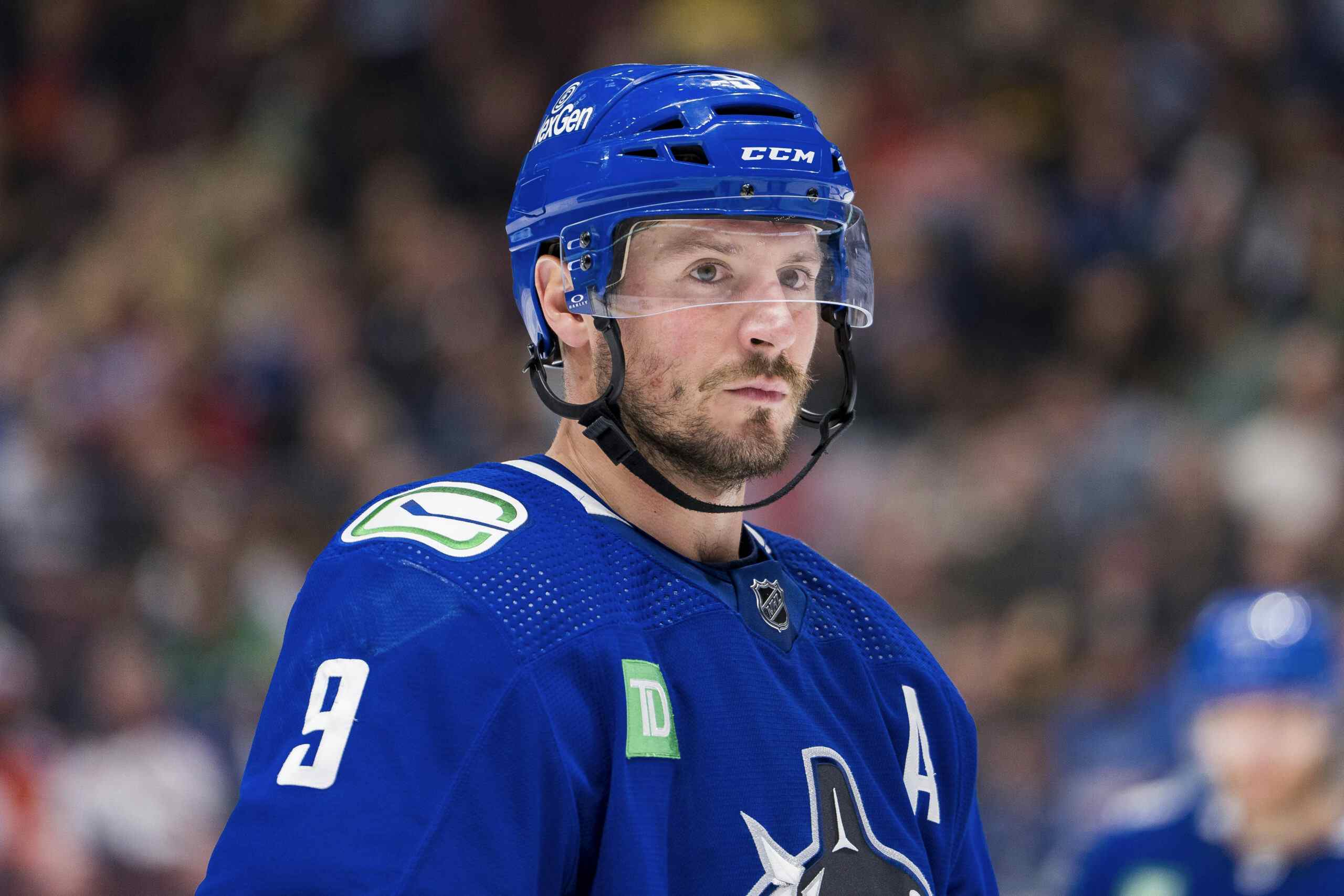Why the Vancouver Canucks Should Re-Sign Radim Vrbata
By J.D. Burke
8 years agoAs the Vancouver Canucks try to escape the clutches of a teardown rebuild, they’re faced head on by the law of diminishing returns. They needn’t look any further on their roster than Radim Vrbata for a prime example of the effects.
Although the Canucks reaped enormous rewards on the front-nine of Vrbata’s two-year pact, it’s been all downhill since. In stark contrast to the immense value Vrbata and his 31-goals presented a season prior, the Canucks couldn’t pluck anything better than a late round selection by the trade deadline.
Vrbata’s status as a pending UFA has the Canucks four months away from losing him to free agency with nothing to show for it. There are other options though, as unpalatable as they may seem at first glance.
It’s hard not to look at Vrbata’s low impact on the scoresheet, night after night, and posit that there’s been a marked decline in ability. Vrbata’s 24-points, 12 goals and assists alike, don’t exactly jump off the page in a positive light. All the more so when one considers the $5-million cost to those 24-points, 58-games into the season.
This kind of scoring can erode confidence over time and it’s safe to say Vrbata’s is visibly shaken. Whether it’s timing or an inability to drown out the noise that washes ashore at Rogers Arena, something seems amiss. It’s entirely possible Vrbata is staring down free agency and the home stretch of his career has cashed his chips on this season, too.
These factors can, and often have played a role in long-term declines in production. Every bit as likely and perhaps more relevant given our ability to account for it is the impact of variability and usage on Vrbata’s ability to make good on his chances.

Vrbata’s impact on the team’s ability to generate shots remains solvent. His conversion rate clearly hasn’t deterred him from launching pucks at the opposition’s net. Vrbata is second on the Canucks in iCorsi/60 (16.82) and iFenwick (13.24). Given the Canucks status as a bottom-third club by every underlying shot-based metric, that’s value added to a roster in desperate need of it.
If Vrbata is still generating a high volume of shots, one might expect that at some point the offence will follow. The scoring chance data mirrors the underlying shot data (second on the team, again), so it’s not like these are strictly perimeter plays either.
The converse is that Vrbata forgot how to play offence overnight. Well, over the course of an off-season, anyways. It’s more likely that Vrbata’s 18th worst PDO (96.2) is driving his boxcars, and subsequently his trade value, into the dirt. Not to mention the fact that he’s spent much of this season away from the Sedin twins.
A few steps down the line is the impact this is having on the dollar value of Vrbata’s next contract.
General managers – rightly or wrongly – use prior production to draw a number for contracts going into the future. Even in so analytics savvy a league as the NHL is becoming, this is a regular trend. Vrbata likely has one more stab at pay dirt and would be best served on a short-term deal that helps him get there. Sure as hell isn’t happening after this season.
The Canucks would be wise to use this leverage on a short term contract, at a higher dollar value than Vrbata is likely to receive on the open market. At the very worst, they’re stuck with another season of a very useful middle-six forward. Best case scenario, Vancouver recoups some of the assets they failed to extract the first go around.
When life gives you lemons, and so on.
Recent articles from J.D. Burke





